|
Another high-stakes immigration case is being heard by the High Court this week that could affect up to 200 refugees currently being detained in Australia.
What’s the case all about? And could it have a similar impact to the High Court decision last November which resulted in the release of around 150 detainees, some of them convicted criminals?
Law professors Sara Dehm and Anthea Vogl answer these questions – and more – in their thorough overview of the case, which commenced yesterday.
According to Dehm and Vogl, the case will be closely watched by refugee advocates because it may result in further limits on the immigration minister’s power to keep people indefinitely in detention – in particular those who refuse to cooperate with the government’s efforts to deport them.
They note the case also highlights the failure of the “fast-track” system for processing asylum seekers who attempted to reach Australia by boat.
Like the Iranian at the centre of the High Court case, known by the pseudonym ASF17, these refugees had very little hope of success in what the authors call an unfair legal process, which the Albanese government now wants to scrap.
Ps: when you next visit our website you might notice we’ve made some changes to the way we present content to make things easier to find. We hope you like the new look.
|

|
Justin Bergman
International Affairs Editor
|
|

Sara Dehm, University of Technology Sydney; Anthea Vogl, University of Technology Sydney
The case could result in further limits on the immigration minister’s powers to keep refugees in detention indefinitely.
|
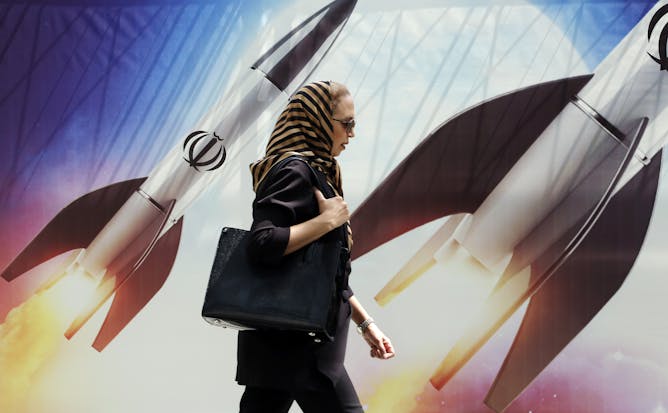
Flavio Macau, Edith Cowan University
A spike in oil prices as a result of escalating Middle East tensions would not immediately affect Australia – but precautionary measures should be taken.
|
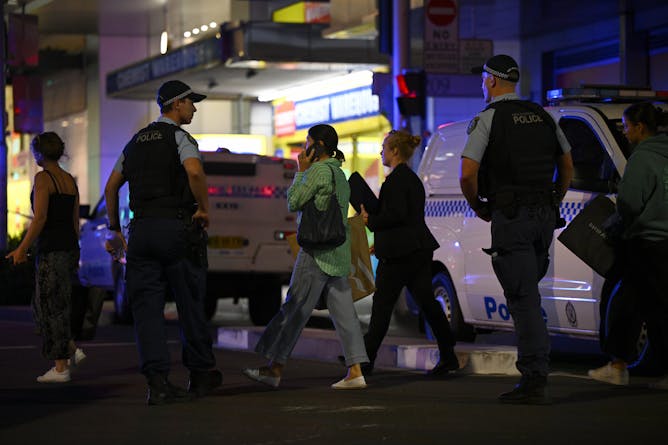
Milad Haghani, UNSW Sydney
The “zero responders” – bystanders who proactively assist – play a pivotal role in the immediate response to crisis. They can be key players in preventing, reporting and containing a violent incident.
|
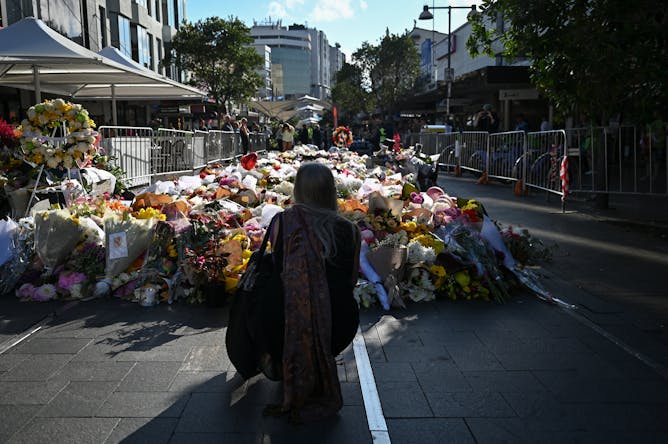
Amanda Cole, Edith Cowan University
When someone has mental illness, their families can experience distress, stress, fear, powerlessness, and still love.
|
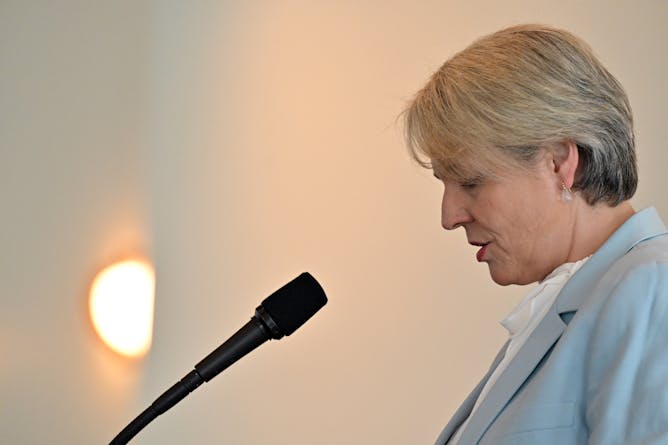
Euan Ritchie, Deakin University; Megan C Evans, UNSW Sydney; Yung En Chee, The University of Melbourne
An end to extinctions. An environmental cop on the beat. Labor promised a great deal on the environment. But yesterday, they backed away from the main challenge.
|
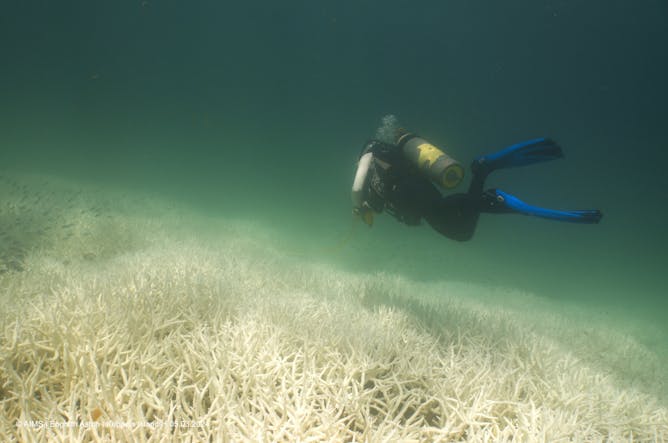
Britta Schaffelke, Australian Institute of Marine Science; David Wachenfeld, Australian Institute of Marine Science; Selina Stead, Newcastle University
The first global bleaching event was in 1998 and the fourth is now under way. Until we curb the emissions driving global warming, the pressure on coral reefs will continue to increase.
|

Michelle Grattan, University of Canberra
The stabbing of Bishop Mar Mari Emmanuel in a church in Wakeley on Monday has left many in shock. Dai Le, whose electorate features the church where the incident happened discusses her community's reaction.
|
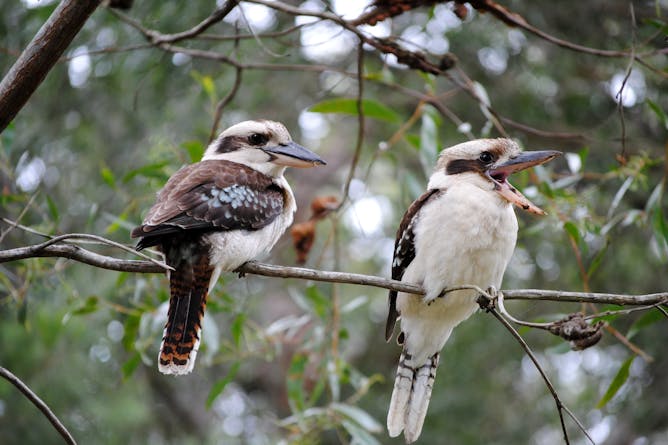
Diana Kuchinke, Federation University Australia
We think of laughing kookaburras as common in Australia and their call certainly lets us know when they’re about. But several factors are driving down their numbers.
|
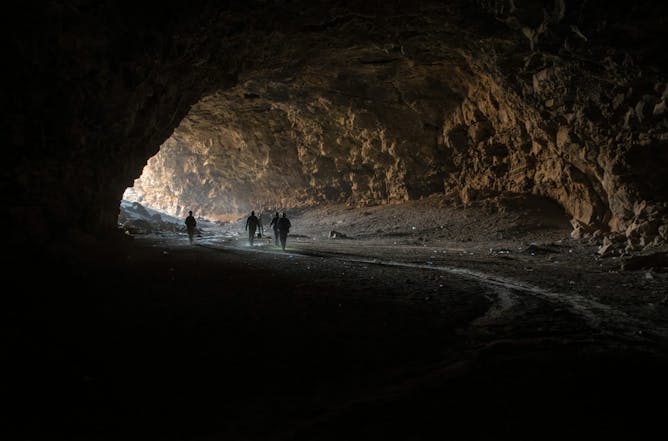
Mathew Stewart, Griffith University; Huw Groucutt, University of Malta; Michael Petraglia, Griffith University
New research reveals signs of ancient human habitation in a vast cave beneath the Arabian desert. It may have been used as a waystation by Stone Age herders travelling from one oasis to another.
|
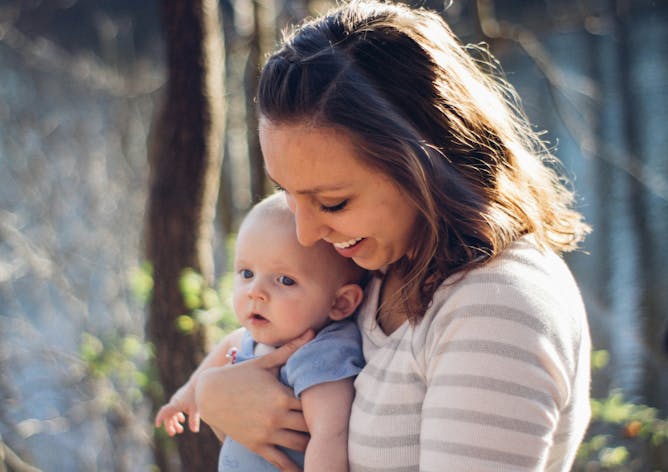
Karin Hammarberg, Monash University; Robert Norman, University of Adelaide
Some women who use drugs like Ozempic have reported unexpected pregnancies. What’s going on?
|
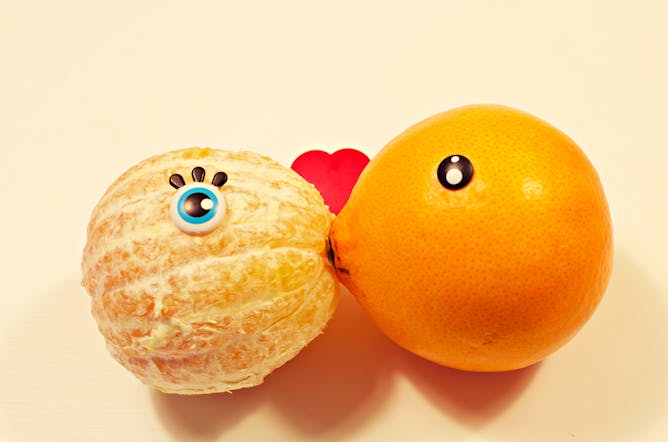
Edith Jennifer Hill, Flinders University; Lydia Woodyatt, Flinders University
These tests can even be harmful to the people being ‘tested’, as well as to the couple.
|

Nathan Abrams, Bangor University
Larry David has called time on the misanthropic cult TV comedy classic after 12 seasons and 120 episodes.
|
Politics + Society
|
-
John Cairney, The University of Queensland; Richard Baka, Victoria University; Tracy Taylor, Victoria University
A new Olympic funding strategy aims to boost the finances of smaller Australian sports like table tennis – but will it actually work?
|
|
Health + Medicine
|
-
Giuliana Murfet, University of Technology Sydney; ShanShan Lin, University of Technology Sydney
There are a range of reasons why short sleep might be associated with an increased risk of type 2 diabetes, as a recent study showed. But sleeping too long has also been linked to the condition.
|
|
Science + Technology
|
-
Chao Chen, RMIT University; Kok-Leong Ong, RMIT University; Lin Li, RMIT University
With 17 billion internet-connected devices worldwide, AI is subtly creeping into our everyday lives – and making us more vulnerable to cyberattacks.
|
|
Education
|
-
Claire Breen, University of Waikato
Punishing parents of truant children misses factors – such as poverty and hunger – keeping some children out of school.
-
Melissa Cain, Australian Catholic University; Melissa Fanshawe, University of Southern Queensland
Students with disability are experts in themselves and their needs. But we found they are often not consulted by their teachers about what helps them at school.
|
|
Arts + Culture
|
-
Philip C. Almond, The University of Queensland
When scientists observed planets revolved around the Sun, they posited we were now like other planets. And if other planets were like Earth, then they most likely also had inhabitants.
|
|
Books + Ideas
|
-
Emmett Stinson, University of Tasmania
Two fascinating new novels are not particularly difficult, but their relationship to established traditions of experimental literature is clear.
|
|
Business + Economy
|
-
Michelle Evans, The University of Melbourne; Cain Polidano, The University of Melbourne
A better understanding of Indigenous businesses in Australia could build on the already significant contribution they make to the economy.
-
Sean Pinder, The University of Melbourne
Both are measures of profitability, but the disparity between return on investment and return on equity grows larger as a company relies more heavily on borrowing.
|
|
| |
|
|
|
James Cook Univeristy
Cairns QLD, Australia
•
Contract
|

|
|
The Conversation AU
Melbourne VIC, Australia
•
Full Time
|

|
|
|
|
| |
| |

|
| |
| |
| |
Featured Events, Courses & Podcasts
|
View all
|
|
|
|
| |
| |
| |
| |
| |
|
|